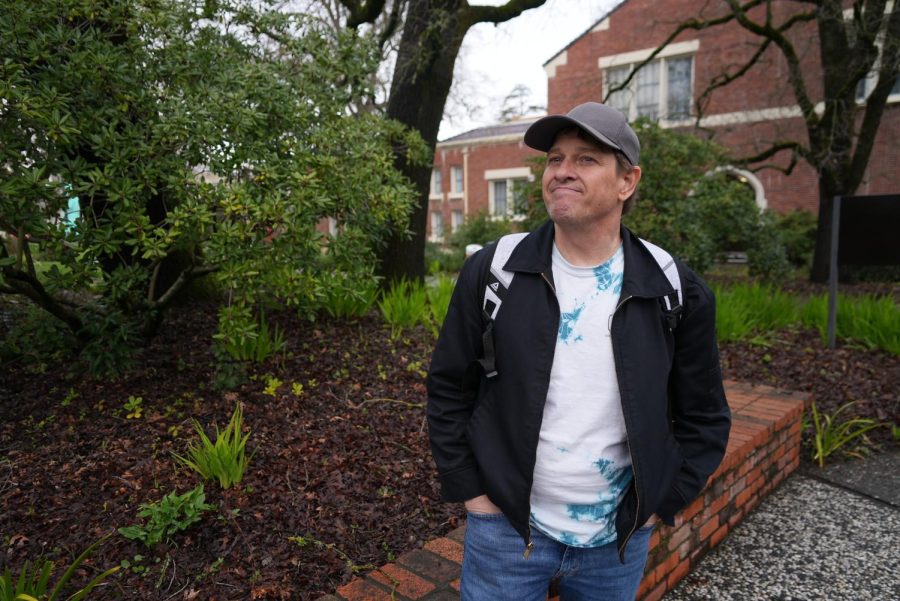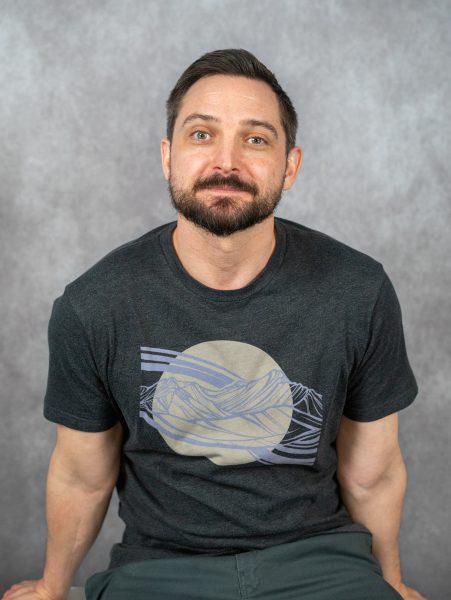Members of Santa Rosa Junior College’s Students for Recovery Club spoke about the connection between addiction and mental health, as well as ways to enhance the recovery lifestyle, at 6 p.m. Feb. 21 in Bertolini Student Activities Center.
“There’s a lot of factors that point people to drugs and alcohol, and what I want to do with Students for Recovery is give people as many options as possible to heal or overcome addiction,” said Dan Lionett, the new president for Students in Recovery.
To support inclusivity, Lionett chose to follow the “All Recovery” meeting format, an alternative to “12-step” meetings such as Alcoholics Anonymous or Narcotics Anonymous. All Recovery meetings are open to anybody who struggles with addiction or is affected by addiction through a family member or loved one and supports the recovery lifestyle. The meetings also include those who are receiving medically assisted treatment for addiction, such as suboxone or methadone therapy for addiction to opiates.
Besides focusing on addiction, Lionette wants to explore the connection between substance use and emotional well-being in the meetings.
Lionett said most people he’s met who are in recovery also suffer emotionally and mentally, which is why he wants to focus on mental health along with addiction in meetings.
“I relate my alcohol and drug use as a mechanism for my inability to cope with life,” he said. “I’m 10 years clean and sober, but I haven’t fully recovered from life, and I learn that on a daily basis.”
A common experience many members shared is that life doesn’t automatically become easier just because they’re in recovery. Initially, it can become harder, because, as Lionett put it, “You need to find a way to fill the void when you take away that coping mechanism.”
One member said she wasn’t aware of her depression until she became sober, because she successfully masked it with alcohol.
Members collectively chose the term “mental suffering” to refer to the lack of emotional well-being.
“We have an epidemic of mental suffering,” Lionett said. “In a culture that emphasizes success, there’s a lot of shame and guilt that goes with the feeling like you don’t add up, which pushes a lot of people into the process of addiction.”
Lionett also wants to discuss various coping mechanisms members could use to enhance the recovery process or lifestyle at their meetings.
“For a lot of people, when we’re becoming who we’re going to be, we don’t have a lot of guidance, and sometimes the guidance that we get comes from a dysfunctional nature,” he said.
To Lionett, successful coping mechanisms should help members find an inner equilibrium. Even ways to cope that look healthy on the outside can perpetuate addictive processes. One year during his journey in recovery he ran 52 half-marathons, which gave him time to focus on his inner dialogue, he said.
“But some of the conversations I’m having inside my head aren’t very nice, tending to focus on shortcomings and not how I can heal,” Lionett said. “I got skinny and I had really nice calf muscles, but what was going on on the inside was still going on on the inside.”
One club member said that everyone’s self-care is different. An appropriate coping skill is whatever brings you joy, and it could be enjoying walks in nature or spending time helping your kids with their education.
A controversial topic among recovery groups that members introduced is the concept of controlled use of drugs or alcohol. Controlled use focuses on reducing harmful behavior associated with intoxication, such as drinking and driving, instead of, or as a precursor to, abstinence. As Lionett wanted the club to be as inclusive as possible, he was open to the idea.
Lionette said part of his job is “to make this group welcoming and interesting.” He urges any student looking for support to attend meetings. Attendees are free to share or listen to what others have to say.
“Some of us are looking for fellowship within the recovery community. Some of us are also interested or supportive of the recovery lifestyle,” he said.
Current members struggle with specific addictions, from drugs, alcohol, sex and gambling, and general addictive behavior. Some have been sober for 15 years while others have started the recovery process within the past year.
Natalie Hernishin, 33, a human services major, came to the meeting to learn ways to cope with a family member who is an alcoholic. Hernishan said she tried to go to Al-Anon meetings, which are for the family and friends of alcoholics, but got scared off. At first she worried about coming to Students in Recovery because, in her experience, many recovering addicts aren’t comfortable talking to “normies,” but she felt comfortable at her first meeting.
“Maybe in a few more meetings, I’ll feel more accepted and they can understand my point of view and I can also understand theirs better,” Hernishan said.
She supported the idea of speaking about emotional well-being because of her own mental suffering.
Brijit Alemán, an SRJC bilingual therapist and mental health technician, attended the meeting as a stand-in advisor for Jessica Paisley, a Human Services and Second Chance counselor, who is the club’s usual advisor.
“What I heard is that there is great suffering from these students from being stigmatized. They showed courage to show vulnerability and share space at this meeting,” she said.
These meetings should give students the opportunity to create a recovery model of their own, Alemán said.
Students for Recovery meets at 6 p.m. Tuesdays in the Bertolini Student Activities Center. Students can go here for more information.




